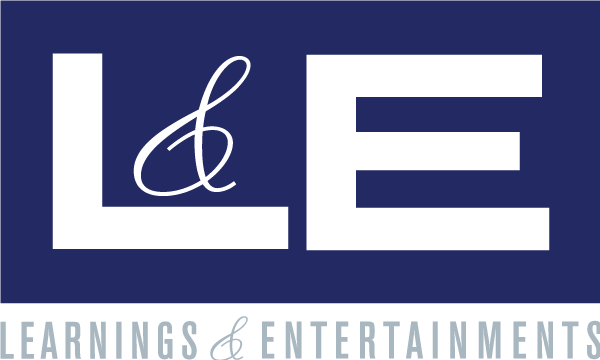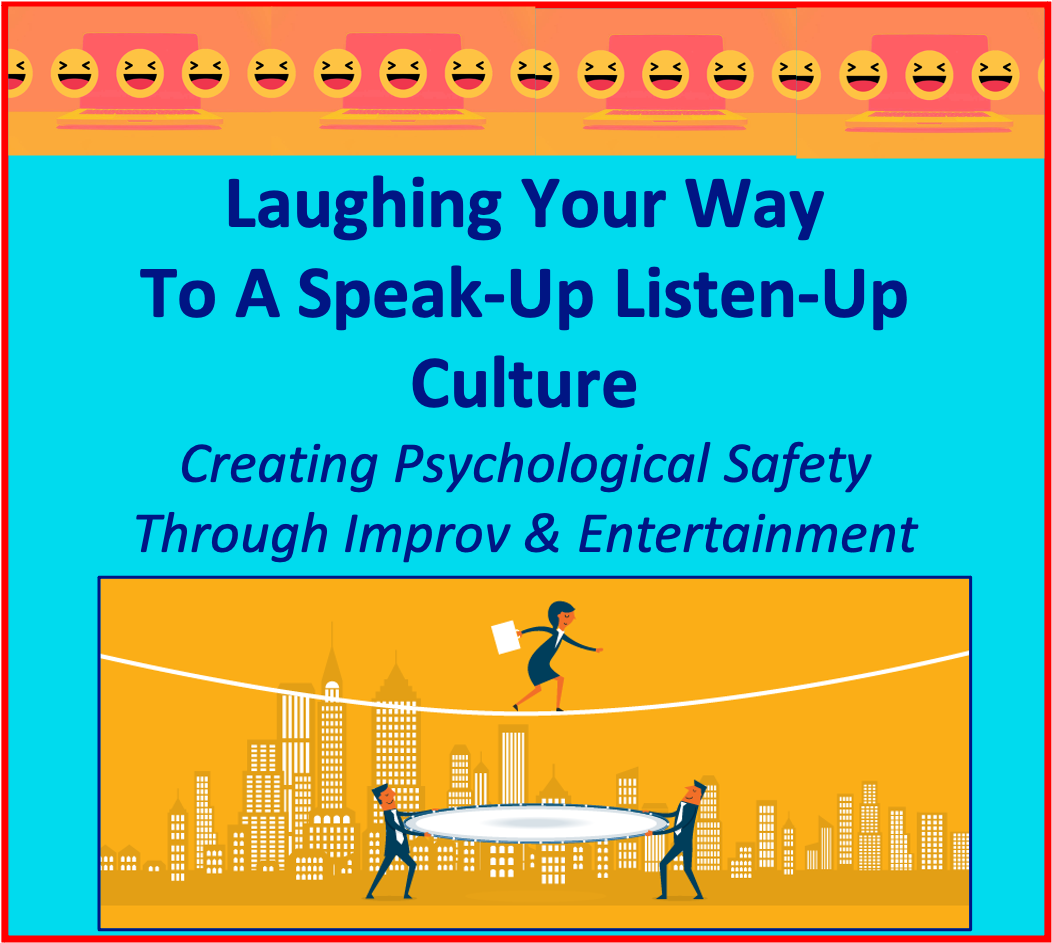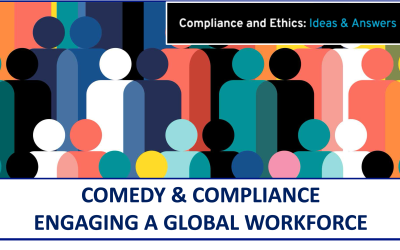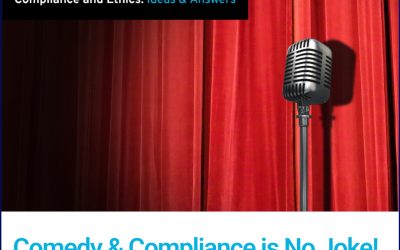Strange as it may sound, there is an interesting overlap between the improv, comedy & entertainment community and the corporate risk & learning & development communities. The philosophies behind creating an environment where comedic creativity can thrive and creating an environment where employees feel safe to speak up to challenge business decisions and report concerns are similar. Both cultures successfully cultivate an environment of psychological safety. There are also quite a few tools and techniques used for entertainment that the corporate risk community could benefit from. You can get a few Ahas from the Ha-Has! 🙂 Let’s get into it!
Psychological safety can be defined as the belief that you won’t be punished for speaking up with ideas, questions, concerns, or mistakes. There are several books on the subject including Amy Edmondson’s The Fearless Organization and The Four Stages of Psychological Safety by Timothy Clark. This, in my opinion, is the number one issue that the ethics & compliance, DE&I, and corporate risk functions face.
“Silence and ambiguity have consequences. The Compliance & Ethics function can be a strategic partner in removing barriers, promoting courage and clarity, and driving cultural change.” Debra Sabatini Hennelly, President Resiliti Ethical Leadership & Organizational Culture
Steering the battleship that is corporate culture feels daunting, but creating a psychologically safe environment where leadership is trusted and employees feel supported is achievable. It will take an ongoing effort and it will take time.
Influencing Speak-Up Listen-Up culture comes with many challenges.
- As cultural norms change there are emerging risks around race, gender along with the numerous corporate policies, rules and regulations employees struggle to keep up with.
- The constant bombardment of corporate messaging that employees face makes it difficult to get airtime and even more difficult to stand out and get noticed. Employees are drinking out of a fire hose.
- Short attention spans, short working memory and the forgetting curve. Long, boring and infrequent training is problematic.
- There are deep-seated cultural issues around speaking up that often make it difficult for employees to find their voice, even when they know right from wrong.
- Leaders are often ill-prepared to deal with employees who speak up which can have long lasting ramifications.
- There is a constant battle to establish trust between the rank and file and senior leadership. It’s hard to gain and maintain a sense of organizational justice.
With this as a backdrop, companies are finding that the typical boring, annual (or even quarterly) training along with a once-a-year speak up poster campaign are grossly inadequate for mitigating risk.
Here are four lessons from the improv, comedy & entertainment world that can help establish a psychological safe environment of trust and support. Use Improv & Entertainment To:
- Give leaders Listen-Up skills on how to empathize and encourage speaking up.
- Advertise your help and support, as much as possible, everywhere you can.
- Tell real stories to share examples, consequences, provide transparency and build trust.
- Give leaders fun programming activities to get them to carry the messaging forward.
- Improv Your Way To a Listen-Up Culture: Provide Skills Training To Leaders
Leaders have a profound impact on corporate culture. The Stanley Milgram experiment is the classic example of authority and obedience trumping one’s own personal sense of right and wrong. Your immediate leader/manager is not only where employees first go to report bad behavior, its’ also where a lot of the problems often originate! If your boss is the problem, your overall corporate culture may be fine, but the people who work for him/her, have a different opinion. Leaders harbor more risk and have greater influence that cascades throughout the organization and yet leaders often receive very little training on how to create a psychologically safe environment that encourages people to speak up to ask questions, challenge decisions and report concerns. An open-door policy means nothing if employees are afraid to go through it.
Believe it or not, improv training can help. Improvisation is often associated with comedy. Shows like Whose Line Is It Anyway popularized the art form on TV and there are a litany of famous comedians that come from an improvisational background (e.g. John Belushi, Chris Farley, Steven Colbert, Tina Fey, Kristin Wig and a large percentage of the SNL cast over the years). What’s interesting is that the skills of an improviser have broader application than just comedy and entertainment. To create in the moment, off the top of their heads, without a script, in collaboration with their partners on stage, improvisers tap into a toolkit of well-honed communication skills that have been nurtured through practice.
“Applied Improvisation is Yoga For Your Communication Skills”
Professional improvisers go through extended rehearsals consisting of exercises and role-plays focusing on staying present in the moment, active listening, postponing judgment of themselves and others, creating space for alternative ideas and new possibilities, building bridges to the ideas of others, and perhaps most importantly, creating an atmosphere of unconditional support. They practice these soft skills with the ensemble creating an environment of psychological safety in the process. When speaking about improv, Amy Poehler famously said.
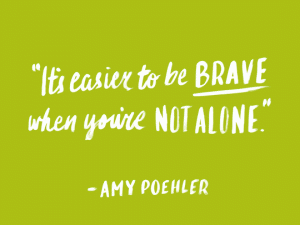
This skills training can help with creativity and agility, listening and collaboration and to be hyper aware of both verbal and physical communication that both help and hurt you. These are muscles that can be built through practice and can help leaders be more mindful of how they communicate to help create a welcoming atmosphere of trust and support. It’s fun too…and we all know that learning is more effective when it’s fun! This soft skills training paired with an easy reference toolkit of Speak-Up reporting support resources can have great impact for leaders.
- Advertise Your Help & Support As Often As Possible In Entertaining Ways
It’s important to recognize that the ethics & compliance function typically has a poor reputation. In the comedy world, we might say, “you’re not playing to a warm room.” Simply put, you have a bad brand. (see E&C Role vs. Reputation The Great Irony) People don’t speak up to ask questions and report concerns when they are annoyed, apathetic or afraid. The good news is that the ethics & compliance function is a resource of helpful advisors and coaches and not the finger-waggy wrist slappers that employees purport them to be. The Speak-Up reporting mechanisms are safe and helpful and the best way to protect people. We need to rebrand what these resources mean to employees until a new reputation is formed. This will require a commitment to a creative communication campaign that must be sustained over time.
It’s also important to recognize that the traditional corporate risk training methods often exacerbate the problem. This training tends to teach and test knowledge of policies as opposed to providing practical tips on how to do their jobs in a more compliant way, and it does this right after forcing them to read legalese. It tends to be long, quite boring and infrequent. It annoys people and wastes their time which leaves an imprint. Regardless, knowledge and understanding is only part of the equation anyway, because we know that the culture (the social and leadership environment) has a larger impact on behavior. The power of conformity and group think is strong and can work for or against your interests. Lesson 1 above touches on improving the leadership environment. To influence the social environment, adopting a marketing and advertising mindset can be helpful.
“Regular E&C vitamins are more effective than annual training inoculations.”
Effective advertisements tend to be simple, short, have some entertainment value (comedic, dramatic, musical, etc.), are repeated frequently and pop up wherever people congregate. They don’t jam pack every bit of information into them. They are short and clever and provide the important information but also a tease to where you can find out more. They tend to have a consistent message, but they vary the delivery of that message in interesting new ways so that it appears fresh and you don’t get message fatigue. Often these advertisements are about very serious subjects, but they can still be memorable and positive and even fun! There’s a difference between having a difficult conversation and a conversation about a difficult thing. You can separate the messaging from the delivery mechanism to increase the likelihood that the message will be received.
I would argue that this is so important and so serious that your campaign should be entertaining.* Why?
- Things that are short and entertaining stand out and get noticed and have a higher content retention rate.
- Things that are short and entertaining can be repeated over and over and over again.
- Perhaps most importantly, things that are short and entertaining can live in more places…like commercials.
You can post them in other department newsletters, integrate within other department trainings, can push out via internal social media style networks, be played as a commercial between speakers at a town hall or played to kick off an internal Zoom meeting. If your messaging is short and entertaining, it increases your visibility and presence by opening up training and comms channels that weren’t available to you before.
Last but not least, by presenting these important resources in a positive, entertaining way, you are establishing your reputation as positive, interesting and approachable, making it more likely that people will reach out to ask for help and support.
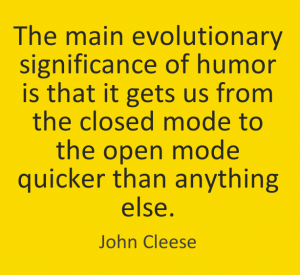
*Note: Entertaining doesn’t necessarily mean funny. There are effective ways to utilize humor to socialize learning but entertainment comes in many forms. Songs and music. Action & adventure. Dramatic stories. GIFs & memes. Talk shows & podcasts. Movie trailers & infomercials. There are lots of entertaining formats, styles and mediums that can be adopted and used in service of these very important messages.
- Tell Real Stories To Build Transparency & Trust
It’s important to share stories about bad behavior and its consequences. It’s even better if you can get leadership to do it. Some lawyers get squirrely about this, so you’ll have to navigate the issues of privacy around sharing the scuttlebutt at your company. I’m also not a fan of scare tactics which often drives bad behavior underground. Having said that, I think it’s critical that employees hear about what happens when people do bad things. We need to make it relevant to them. We need to share the mechanics of how the reporting and investigative process works. We need to share the results of what happened. We can use these stories to teach about gray area situations on a variety of risk areas. We can use these stories to provide transparency so employees can get comfortable with what happens should things go down. We can use these stories to build trust and a provide a sense of organizational justice.
Stories about workplace behavior gone wrong are inherently entertaining and not just in a schadenfreude kind of way. They are filled with drama, colorful characters, interesting nuances, unexpected obstacles, surprising twists and turns involving fraud, corruption, bullying, conflicts, sex and other “juicy” topics. These stories are no different than the stories people watch on TV, listen to on podcasts or read in books. You can bring these stories to life in any number of ways.
- Written Case Studies – Compliance Chronicles
- Animated Stories – Tales From the Hotline
- Leader Stories via Talk Show or Podcast – Get leaders sharing real stories about how their integrity was challenged.
There is an old comedy adage, “things are funny because they’re true.” Let’s expand this to say, things are entertaining when they are based on truth. Employees are always interested in hearing real stories. You can pull these stories from the news or scrub real stories from your company. This tends to be the most popular content shared by ethics & compliance departments because it piques employees curiosity and brings these important, complex issues to life in a way that’s more engaging and memorable.

- Give Leaders Entertaining Programming To Help Them Carry The Message Forward
I would argue that the single most important role for an ethics & compliance professional is to be influential. Influence is everything. There are many more of them than there are of you. You can set up controls but you can’t be the police. You need to be an advisor and coach but you need their help to spread the word. Ethics and compliance programs need to create programing that makes it easy for others to carry the integrity, compliance and speak up messaging forward on behalf of the company. This will go a long way toward getting conformity and group think working toward a positive corporate culture that doesn’t put up with bad behavior versus a negative one where its tolerated.
If programming is entertaining, leaders and ethics ambassadors are more likely to utilize the tools and resources that are provided. Package things up and make it easy for them.
- Commercials: Provide the short, entertaining commercials from Lesson 2 to play prior to weekly department meetings.
- Stories with Facilitators Guides: Use those stories from lesson 3 paired with facilitator guides for 15-20-minute discussions at the local level.
- Contests & Games: Ethics Jeopardy and other types of games are available to make these topics gamified and fun. Host song contests to have departments compete to write the best Speak-Up jingles. Create Buzzfeed-style quizzes that tie to core values. Embed fun facts in your Code and create scavenger hunts to find them.
Asking leaders and employees to do something active helps to further ingrain the messaging into the fabric of the organization. Make things easy and fun to get ethics out of the ethics office and into the business.
Summary:
We can utilize the philosophies and skills of improvisation and the tools of entertainment in service of our messaging to actively influence our culture. As the famed flying umbrella-wielding Marry Poppins famously sang, “a spoonful of sugar helps the medicine go down.” In the ethics, compliance and corporate risk community, truer words have never been uttered.

— — — — —
Ronnie Feldman, President & Creative Director, Learnings & Entertainments
